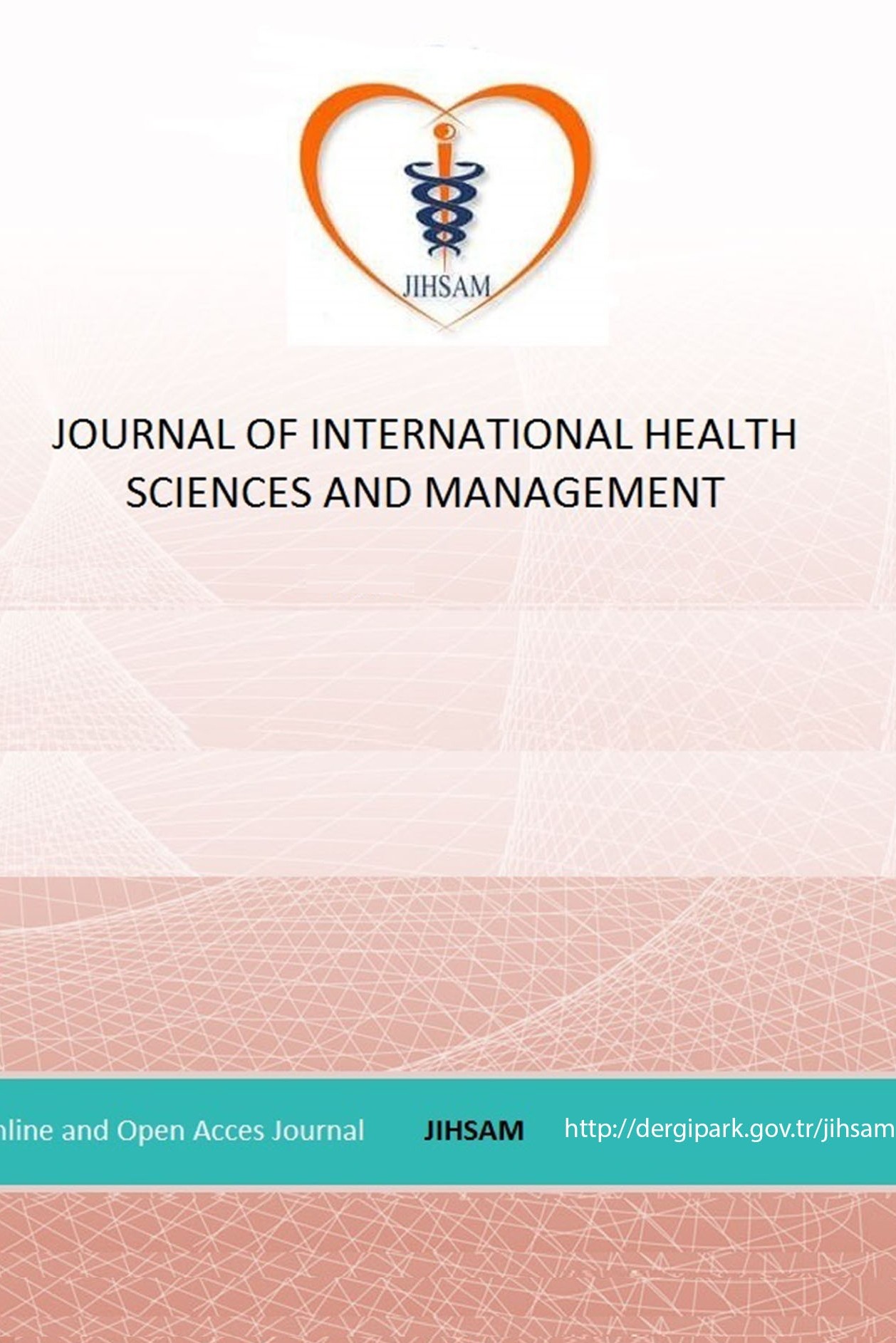Knowledge, attitudes, and skills among primary health care workers in developing health promotion settings in a district of Sri Lanka
Knowledge, attitudes, and skills among primary health care workers in developing health promotion settings in a district of Sri Lanka
Healthy sitting is defined as a place or social context in which people engage in daily activities in which environmental, organizational, and personal factors interact to affect health and wellbeing. This study was conducted to determine the knowledge, attitudes, and skills of primary health care workers in establishing health promotion settings in the Kalutara district, Sri Lanka.
This was a cross-sectional descriptive study. A structured, pre-tested, and self-administered questionnaire was used to collect data from study participants. The data were analyzed by using statistical tests and Chi-square values. A majority (215, 70.0%) had 'poor' knowledge. The knowledge was significantly associated with educational level GCE A/L or higher (P±0.012) and ability to read English (P±0.021). Public health experience of PHMM less than 5years was significantly associated with knowledge (P±0.002). The level of attitudes was good (204, 69.4%). The level of knowledge was significantly associated with the level of attitudes (P ± 0.004). Only 25.1% (77) had adequate skills. The level of skills was significantly associated with the existence of health promotional settings in their fields (P ± 0.000). Availability of healthy settings in the fields of PHMM with the extent of field areas less than the mean (P ± 0.017) was significantly associated. The present study concluded that PHCW had 'poor' knowledge and skills in health promotional setting while their attitudes were found to be 'good'. Lack of time and inadequate training in the field of health promotion were identified as the commonest barriers.
___
- 1. Douglas, F., Torrance, N., van Teijlingen, E. et al. (2006) Primary care staff's views and experiences related to routinely advising patients about physical activity. A questionnaire surveys. BMC Public Health 6, 138. https://doi.org/10.1186/1471-2458-6-138
- 2. Fernando, D., Gunawardena, N., & Weerasinghe, C. (2006). Essential public health functions. Journal of the College of Community Physicians of Sri Lanka, 11(2), 24. https://doi.org/10.4038/jccpsl.v11i2.8255
- 3. Geense, W.W., van de Glind, I.M., Visscher, T.L. et a l (2013). Barriers, facilitators, and attitudes influencing health promotion activities in general practice: an explorative pilot study. BMC Fam Pract 14, 20. https://doi.org/10.1186/1471-2296-14-20
- 4. Health promotion association, Australia (2009) Core competencies for health promotion practitioners. Available at: http://healthpromotion.org.au/aboutus.html
- 5. Institute of Policy Studies of Sri Lanka, (2007). A Commentary on Policy Options. Mahinda Chinthana: p.96 ; (Working Paper Series ; No 11). Mahindachinthana (2007).pdf (ips.lk)
- 6. M., Engberg, M., & Lauritzen, T. (2005). Perspectives on lifestyle intervention: the views of general practitioners who have taken part in a health promotion study. Scandinavian journal of public health, 33(1), 4–10. https://doi.org/10.1080/14034940410028181
- 7. Jacobsen, E.T., Rasmussen. S.R., Christensen, M., Engberg, M., Lauritzen,T (2005),Perspectives on lifestyle intervention: the views of general practitioners who have taken part in a health promotion study‟. Scandinavian Journal of Public Health. 2005, 33(1):4–10. https://doi.org/10.1080/14034940410028181
- 8. Judd, J., & Keleher, H. (2013). Building health promotion capacity in a primary health care workforce in the Northern Territory: some lessons from practice. Health promotion journal of Australia : official journal of Australian Association of Health Promotion Professionals, 24(3), 163–169. https://doi.org/10.1071/HE13082
- 9. Ministry of Health. Sri Lanka. (2007) Health master plan of Sri Lanka – healthy and shining island in the 21st century. Colombo. Ministry of Health, Sri Lanka.
- 10. Ministry of Health. Sri Lanka. (2009) National health promotion policy. Colombo. Ministry of Health, Sri Lanka. http://whosrilankahealthrepository.org/ .
- 11. Ministry of Health Sri Lanka. (2010). National nutrition policy of Sri Lanka. Ministry of health Sri Lanka. https://leap.unep.org/.../national-nutrition-policy-sri-lanka-2010
- 12. Ministry of Health Sri Lanka. (2016) National Strategic Framework For Development of Health Services 2016 – 2025. https://extranet.who.int/countryplanningcycles/sites/default/files/planning_cycle_repository/sri_lanka/national_strategic_framework_.pdf
- 13. Peltzer K. (2001). Knowledge and attitudes of primary care nurses and midwives towards health promotion in rural South Africa. Curationis, 24(4), 46–51. https://doi.org/10.4102/curationis.v24i4.887
- 14. Perera, K.M.N. (2012) Knowledge and Perceive Barriers for Application of Health Promotion Approach among Public Health Midwives in Kandy District. (Master’s thesis. Postgraduate Institute of Medicine, University of Colombo). PGIM library.librepository.pgim.cmb.ac.lk/handle/1/1384
- 15. Wilkins, A. C., Roanna, C., Lobo, A., Denese, M., Griffin, B and Heather, A. (2015) „Evaluation of health promotion training for the Western Australian Aboriginal maternal and child health sector‟. Health Promotion Journal of Australia 26(1) 57-63. Available at: http://dx.doi.org/10.1071/HE14032
- 16. World Health Organization. (1986) Ottawa Charter for Health Promotion Available at: http://www.who.int/hr/NPH/docs/Ottawa_ charter_ hp_ pdf
- 17. World Health Organization. (1997) Jakarta Declaration on Leading Health Promotion in to 21st century. Available at: http://www.who.int/hpr/NPH/docs/Jakartha declaration_en.pdf
- 18. World Health Organization. (1998a) World Health Assembly Resolution on Health Promotion. Available at : http://www.who.int/healthpromotion/wha51-12/en /.
- 19. World Health Organization. (2010) Chronic Disease and Health Promotion. Available at: http://www.who.int/chp/en.
- 20. World Health Organization. (2010a) Developing Health Promotion Competencies and Standards for Countries in South East Asian Region: Report of a Meeting of Experts. WHO/SEARO, New Delhi. 18-20 June 2008. Available at: http://2003.90.70.117/PDS-DOCS/B4465.pdf
- Yayın Aralığı: Yılda 2 Sayı
- Başlangıç: 2015
- Yayıncı: Sedat BOSTAN
Sayıdaki Diğer Makaleler
EVALUATION OF RESORTING TO TRADITIONAL PRACTICES BY ELDERLY PEOPLE DURING THE COVID-19 PANDEMIC
Ranga SABHAPATHİGE, Dilrukshi DEERASİNGHE
Neslişah GÜN, Mahmut Fevzi GÜN
Ethical Aspects of Uterus Transplantation
Nihal USLU, Mehmet Zeki AVCI, Çiğdem Müge HAYLI
Aliye Kübra ÜNAL, Aynur TORAMAN
Aydan KAYSERİLİ, Efdal OKTAY GULTEKİN, Tiinçe AKSAK, Arzu COŞKUN
Hasan Giray ANKARA, Hakan DEĞERLİ, Havvana DEĞERLİ
Investigation of the Effects of Economic Indicators on Child Mortality: Panel Data Analysis
